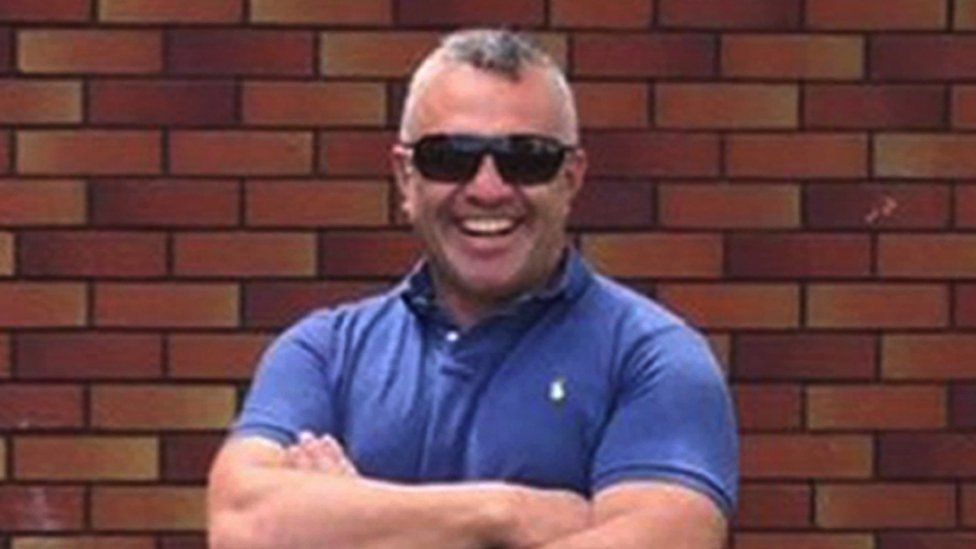Sgt. Matiu Ratana was in charge at Croydon Custody Center in the early hours of September 25, 2020. His final shift would soon begin. Just three months before he was scheduled to retire, he was shot and killed by a handcuffed prisoner.
23-year-old Louis De Zoysa departed his rental apartment on a farm outside of London at around midnight.
He had a vintage Colt revolver hidden under his left arm, which was legal at the time due to the outdated .41 calibre bullets it uses. His own ammunition was homemade.
The revolver had a bullet in each of its six chambers. In his breast pocket, he had a black pouch containing seven additional bullets.
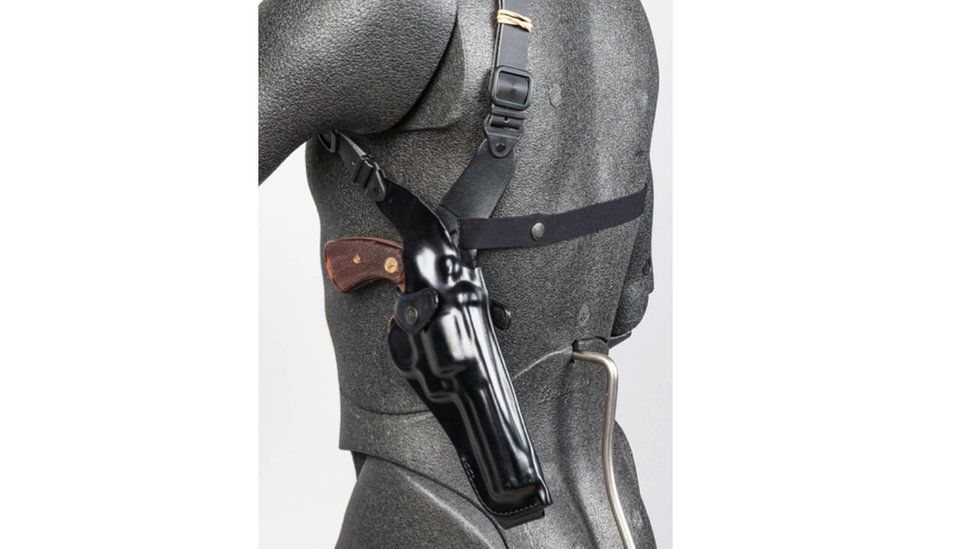
He was carrying a loaded gun and it's unclear why he was wandering the streets close to his parents' home. One theory holds that he went to confront his father, who has been convicted of domestic violence and has been accused of breaking De Zoysa's foot with a bed slat.
In Norbury, south London, at just after 1:30 BST, PC Rich Davey and PC Samantha Still decided to stop Louis De Zoysa when they saw him walking along London Road with a small brown duffle bag. .
De Zoysa informed the officers he had 3g of marijuana after realizing he would be searched. PC Davey discovered the bullets while the man was handcuffed. .
The two officers searched De Zoysa's bag, waistband, and legs, but they somehow failed to notice the gun in the holster tucked under his arm. In the police car, there was no metal detector available to them.
In the back of a police van, he was driven to Croydon Custody Center. Detectives think that while still being handcuffed behind his back, De Zoysa moved the gun from the holster to his hands during the trip. The entrance to the custody area did not have a metal detector.
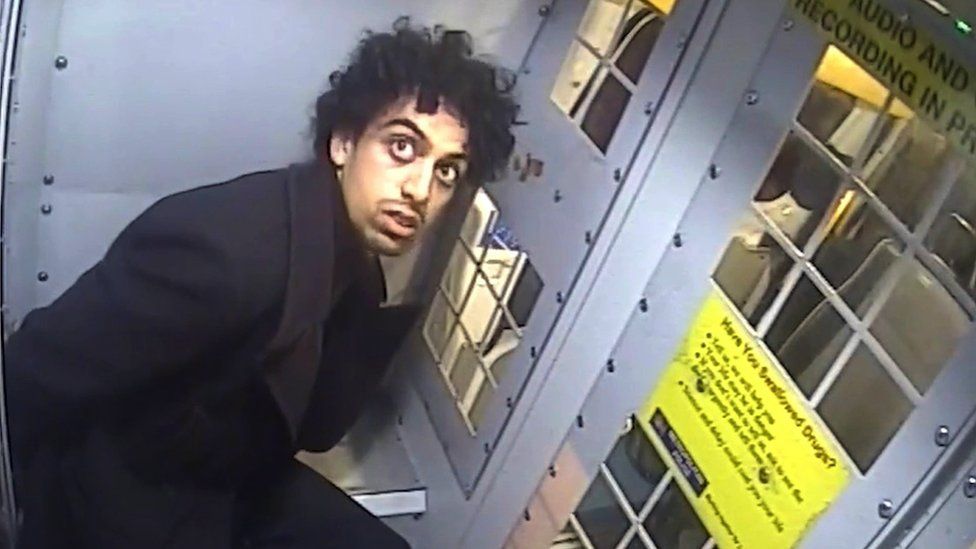
Sgt. Ratana, also known as Matt, took charge once De Zoysa was in the holding area.
So, you're probably going to need a more thorough search, he said after hearing about the discovery of bullets. " .
He gave PC Davey a metal detector wand and said, "Just wand him down, but don't take the cuffs off.". ".
De Zoysa became disobedient and muttered to PCs Davey and Still, "Please leave. ".
De Zoysa shot Sgt. Ratana in the heart as PC Davey helped him to his feet by bringing his still-cuffed hands out from behind his back. .
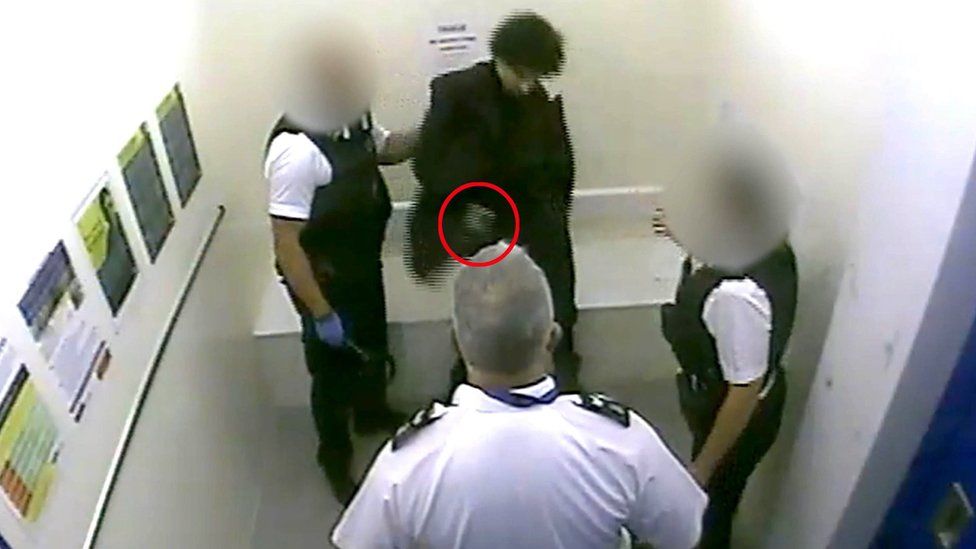
A second bullet struck the custody sergeant in the leg, and a third one struck the cell wall. A 15-second struggle then ensued as PCs Davey and Still pounced on De Zoysa. .
The prisoner's neck was struck by a fourth bullet.
De Zoysa's hypermobility gave him unusually flexible joints, and at some point during the trip to the detention facility, he had been able to remove the gun from the holster and move it into his hands while still concealing it behind his back. .
Sgt. Ratana was created in New Zealand by an immigrant mother from Scotland and a Maori father. He did well in school, excelled in sports, and was elected a prefect despite the fact that the family was not wealthy. .
James Young, his brother, reminisces about how their mother pushed them to watch British television series like the 1970s crime drama The Professionals and sporting events like the FA Cup final. .
He traveled to America to attend Atlanta State University on a tennis scholarship, according to Mr. Young. We anticipated that he would dominate tennis and take home a US Open title, but alas, he fell short. He moved on and became a cop. " .
Matt Ratana, then in his early 20s, relocated to London and joined the Metropolitan Police in 1991. In his marriage, he had a son.
His brother had been involved in crime back in New Zealand and had become accustomed to the ways of the police station. He finds it unbelievable that the gun went undetected by London police. .
He remarked, "What they've told us is that they've changed the procedures and all these kinds of things; they've got metal detectors when you walk through now. Well, the local police stations have those, I say. They've had them for a long time.
They would have discovered what he had on him if he had been in New Zealand, for sure. I know this because I've been there. I have visited police stations where the suspect was searched. It was executed improperly. " .
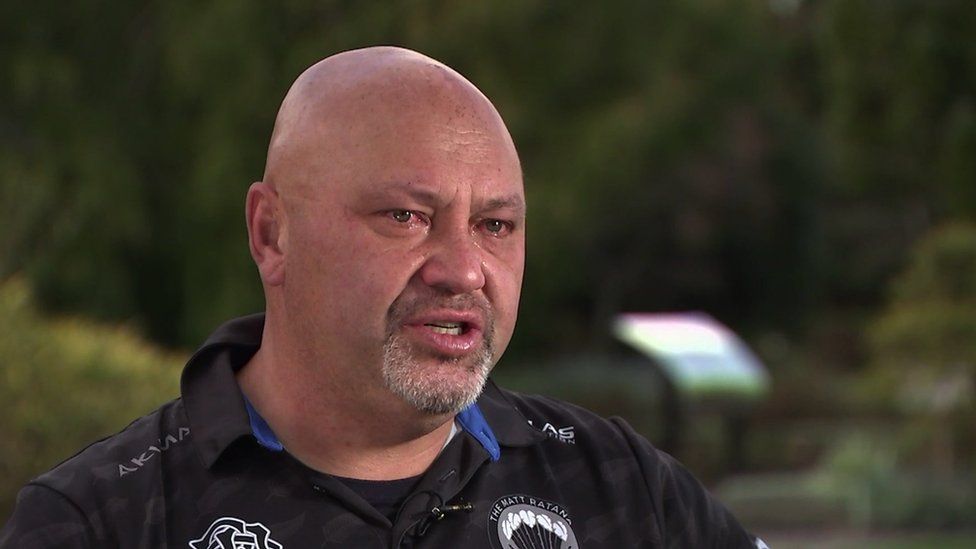
PCs Rich Davey and Samantha Still did not face any disciplinary action as a result of an investigation by the Independent Office for Police Conduct (IOPC).
In June 2021, when its investigation was complete, the IOPC announced that the National Police Chiefs' Council (NPCC) had agreed to its recommendation that handheld metal detectors be added to all emergency vehicles and vehicles used to transport detained individuals.
"Although the officers searching De Zoysa did not strictly adhere to [Met Police Service] training, which requires that the torso be divided into quarters and each quarter be searched from the top down, both back and front, we concluded that neither their actions nor omissions breached the police standards of professional behavior," said IOPC Director of Operations Amanda Rowe.
"However, we recommended that one officer could benefit from additional training regarding body searches and the transportation of detainees, and that the second officer could benefit from training regarding body searches and their role in supporting the other officer. ".
The officers always kept Louis De Zoysa in handcuffs after searching him on the street, according to Met Police Deputy Assistant Commissioner Stuart Cundy. The handcuffs were changed from a front to a back position when the ammunition was discovered on him. ".
Once the shooting began, he praised their bravery.
He claimed that, "I think instinctively, the two arresting officers jumped on De Zoysa to try and wrestle the firearm away and get it off him.".
All Metropolitan Police frontline officers, he claimed, would now have metal detectors in their vehicles. He added that the force was testing the use of a body scanner similar to those found in airports for use in custody suites.
De Zoysa, who was diagnosed with autism spectrum disorder (ASD) at a young age, excelled in school and learned how to shoot while a member of the army cadets.
He self-inflicted his wounds, which led to a stroke, and doctors had to remove a portion of his skull to relieve pressure on his brain.
He struggled to walk or speak for months. He can now speak in single words or brief phrases and primarily uses a wheelchair.
He was deemed fit enough to face murder charges by the Crown Prosecution Service. His attorneys attempted to convince the judge that the man was ineligible to stand trial because he is no longer capable of speaking clearly.
Louis De Zoysa was made to understand the trial's entire language through simplification. When he provided testimony, he was frequently questioned with yes-or-no questions.
It is still unknown why De Zoysa had a gun that evening or why he chose to shoot Sgt. Ratana after concealing it during the street search.
Due to diminished responsibility and the possibility that he had an autistic meltdown that evening, his attorneys argued that he should be found guilty of manslaughter. He was convicted of murder by the jury, though.
Mr. Young claimed that his brother's passing motivated him to strive for a better life.
He affirmed, "I'm not an angel.". "I am a disgraced angel. My brother was the best. I'm on earth now in order to join him in heaven.
. "

